![]() Објављено у Serbia - Друштвена догађања и забава - 08 Mar 2018 10:44 - 31
Објављено у Serbia - Друштвена догађања и забава - 08 Mar 2018 10:44 - 31

I just read an article about Serbia that was issued by a Romanian player VampireA. The article was issued for the Serbian Statehood Day, I later contacted him and asked if I could publish this incredible article. Of course I got a positive answer. I am sending you the whole article, enjoy it.
Thanks again VampireA

Population : 8.9milion people (111th in the World,20th in Europe)
Total Area : 88,361 km^2 (112th in the World,20th in Europe)
Official languages : Serbian
Official currency : Serbian dinar(RSD)
Capital : Belgrade
Population density : 101 people/km^2 (107th in the World,31st in Europe)
Top 5 biggest cities : Belgrade, Novi Sad, Niš, Kragujevac, Subotica
Serbia is a parliamentary republic, with the government divided into legislative, executive and judiciary branches.
Serbia had one of the first modern constitutions in Europe, the 1835 Constitution (known as "Sretenje Constitution"), which was at the time considered among the most progressive and liberal constitutions in the world. Since then it has adopted 10 different constitutions.The current constitution was adopted in 2006 in the aftermath of Montenegro independence referendum which by consequence renewed the independence of Serbia itself.
Serbia is a unitary state composed of municipalities/cities, districts, and two autonomous provinces. In Serbia, there are 147 municipalities (opštine) and 27 cities (gradovi), which form the basic units of local self-government. Apart from municipalities, there are 29 districts (okruzi), with the City of Belgrade constituting an additional district. Except for Belgrade, which has an elected local government, districts are regional centers of state authority, but have no powers of their own; they present purely administrative divisions.
Serbia has two autonomous provinces, Vojvodina in the north, and Kosovo and Metohija in the south, while the remaining area, "Central Serbia", never had its own regional authority.



Basketball


White eagle - fictional

Lynx(Lynx lynx)


Serbian spruce(Picea omorika)


Trumpet


The significance of the 15th of February
The 15th of February,known as Statehood Day, celebrates a number of events.
Firstly, the date celebrates the outbreak of the First Serbian Uprising against the Ottoman Empire in 1804, led by national hero Karađorđe.
Secondly, it celebrates the adoption of the first Constitution of Serbia in 1835,under the rule of Miloš Obrenović.
Finally, the day also has a religious significance, marking the Presentation of Jesus at the Temple, an event known as Candlemas,and is celebrated as one of the twelve Great Feasts of the Eastern Orthodox Calendar.

 s
s

The Case of Petar Blagojevich

Scholars have noted the influence of Blagojevich's case upon the development of the image of the modern vampire in Western lar culture.

The inhabitants of Kisilova demanded that Kameralprovisor Frombald, along with the local priest, should be present at the procedure as a representative of the administration. Frombald tried to convince them that permission from the Austrian authorities in Belgrade should be sought first. The locals declined because they feared that by the time the permission came, the whole community could be exterminated by the vampire, which they claimed had already happened "in Turkish times" (i.e. when the village was still in the Ottoman-controlled part of Serbia). They demanded that Frombald himself should immediately permit the procedure or else they would abandon the village to save their lives. Frombald was forced to consent.
Together with the Veliko Gradište priest, he viewed the already exhumed body and was astonished to find that the characteristics ociated with vampires in local belief were indeed present. The body was undecomposed, the hair and beard were grown, there were "new skin and nails" (while the old ones had peeled away), and blood could be seen in the mouth.After that, the people, who "grew more outraged than distressed", proceeded to stake the body through the heart, which caused a great amount of "completely fresh" blood to flow through the ears and mouth of the corpse. Finally, the body was burned. Frombald concludes his report on the case with the request that, in case these actions were found to be wrong, he should not be blamed for them, as the villagers were "beside themselves with fear". The authorities apparently did not consider it necessary to take any measures regarding the incident.

In De masticatione mortuorum in tumulis (1725), Michaël Ranft attempted to explain folk beliefs in vampires. He writes that, in the event of the death of every villager, some other person or people—most likely a person related to the first dead—who saw or touched the corpse, would eventually die either of some disease related to exposure to the corpse or of a frenetic delirium caused by the panic of merely seeing the corpse. These dying people would say that the dead man had appeared to them and tortured them in many ways. The other people in the village would exhume the corpse to see what it had been doing. He gives the following explanation when talking about the case of Petar Blagojevich:
“This brave man perished by a sudden or violent death. This death, whatever it is, can provoke in the survivors the visions they had after his death. Sudden death gives rise to inquietude in the familiar circle. Inquietude has sorrow as a companion. Sorrow brings melancholy. Melancholy engenders restless nights and tormenting dreams. These dreams enfeeble body and spirit until illness overcomes and, eventually, death.”


Top 5 visited places by tourists
Belgrade






Belgrade, Serbia’s capital and largest city, wasn’t always the pretty city it is today. Located at the confluence of the Danube and Sava rivers, Belgrade has a destructive past: It was fought over in 115 wars and burned 44 times. Today, the city is more peaceful, hosting numerous events ranging from book fairs to music, film and beer festivals. The Belgrade Fortress (4th and 5th images) is the city‘s most famous historic site with museums and churches. It’s also a good place to view the rivers and the city itself. Top museums include the National Museum (6th image), with more than 400,000 exhibits, and the Nikola Tesla Museum, with thousands of the inventors’ personal items and documents.



Zlatibor is a lar tourist destination in the mountains of western Serbia. It’s filled with facilities to keep you happy and healthy, from skiing in the winter to hiking in the summer. A ski resort is located at Tornik, the highest mountain at Zlatibor; runs are capable of handling 5,400 skiers an hour. The region is very scenic, with large meadows and quaint historic villages. Old Wooden churches and an open air museum filled withhold houses are top attractions. After a day spent exploring the region, savor the flavors here of Zlatiborian prsuta, a dried meat, and slivovica, a plum brandy.




Subotica, the country’s fifth largest city, is one of the best places to visit in Serbia for at least a couple of reasons: It has the highest Catholic lation and the most art nouveau buildings of anywhere else in the country. Of particular note are the city hall and the synagogue (1st image), both built in the early 1900s. But this city, which predates the Middle Ages, also is known for its older buildings, including the Cathedral of St. Theresa of Avila (4th image), built in 1797. Cafes around the main square, home to city hall and its blue fountain, are a good place to relax, perhaps admiring purchases from Buvljak, one of the largest flea markets in Europe.



Kopaonik is the highest mountain in Serbia, becoming a national park in 1981. Rugged and scenic, the park is home to Serbia’s main ski resort, with 25 lifts that can handle 32,000 skiers an hour; the snow lasts from November to May. It’s a great place to hike in the summer, with an extensive array of flora and fauna. The mountain also is known for its mineral wealth, with gold, silver, iron and zinc mined here in the past. The park also sports unique rock formations, many of which have names; hot springs; geysers and waterfalls.



Novi Sad is a pretty city on the banks of the Danube River, home to one of the river’s best beaches. A young city by European standards (it was founded in the late 17th century), Serbia’s second largest city sports a laid-back atmosphere, with people relaxing in the many parks. It’s most famous, perhaps, for its annual Exit music festival held in July at Petrovaradin, an old fortress that’s never been conquered. Notable buildings include the old town hall, located on the main square; Dvorac Dundjerski, a well-preserved old castle, and Church of the Great Martyr St. George, a Serbian orthodox church.

Rafting on Serbia’s rivers


Serbia’s geography gives rise to many rafting opportunities, with plenty of rivers being situated in canyons. These offer both a gorgeous view and a good challenge for those looking for it. Many people raft on rivers such as Lim,Ibar and Drina, with some even rafting on the Danube.
Ruins of Viminacium


Viminacium was a major Roman city dating back to the 1st century AD, believed to have reached a peak lation of 40,000.It was devastated by the Huns, rebuilt by Emperor Justinian and then almost eradicated by the arrival of the Slavs.Today, the archaeological site occupies a total of 450 hectares (1,100 acres), and contains remains of temples, streets, squares, amphitheatres, palaces, hippodromes and Roman baths.
Drvengrad
 [
[
Drvengrad is a traditional village built be Serbian film director Emir Kusturica for his film Life is a Miracle.The streets in the village bear the names of various individuals that Kusturica holds in high esteem or finds to be personally significant: Nikola Tesla, Ernesto "Che" Guevara, Diego Maradona, Miodrag Petrović Čkalja, Federico Fellini, Ingmar Bergman, Joe Strummer, Novak Đoković and of course, Ivo Andrić, after whom the main street is named.

*Hair clipper!
*Nikola Bizumić,late 19th century.

*Loading coil!
*Mihajlo Pupin,1899.

*WebGL!
*Vladimir Vukićević,2011.

*Alternating current!
*Nikola Tesla,1888.

*Tesla coil!
*Nikola Tesla,1891.


Famous people from Serbia
Nikola Tesla - Serbian-American inventor, electrical engineer, mechanical engineer, physicist, and futurist who is best known for his contributions to the design of the modern alternating current (AC) electricity supply system.This renowned genius of the 20th century is responsible for many discoveries and inventions. Some of the most famous ones are the first hydroelectric power plant, alternating current, the induction motor, the system for the production and distribution of electricity and over 700 other patents.
(1856-1943)
Novak Djokovic - Serbian professional tennis player.Djokovic is the first Serbian player to be ranked No. 1 by the ATP and the first male player representing Serbia to win a Grand Slam singles title. Djokovic has won numerous awards, including the 2012, 2015, and 2016 Laureus World Sports Award for Sportsman of the Year, 2011 BBC Overseas Sports Personality of the Year, five-time ITF World Champion, and four-time ATP year-end number 1.
(born 1987)
Emir Kusturica - Serbian filmmaker, actor and musician. He has been recognized for several internationally acclaimed feature films, as well as his projects in town-building. He has competed at the Cannes Film Festival on five occasions and won the Palme d'Or twice (for When Father Was Away on Business and Underground), as well as the Best Director prize for Time of the Gypsies.
(born 1954)
Nemanja Vidić - Serbian retired professional footballer. He was part of the Serbia national team from 2002 to 2011.After establishing himself at Red Star Belgrade during the early 2000s, Vidić moved to Spartak Moscow in the summer of 2004. He further garnered breakout attention when he was part of the "Famous Four" Serbian national team defense that conceded just one goal during the 2006 FIFA World Cup qualification campaign, prompting a £7 million transfer to Manchester United in January 2006. Vidić then established a prominent defensive partnership with Rio Ferdinand the following season, earning a reputation as one of the world's best centre-backs, due to his defensive consistency and awareness, as well as his strength, leadership, and ability in the air.
(born 1981)
Vlade Divac - Serbian professional basketball executive and former player.Divac spent most of his career in the National Basketball Association (NBA). At 2.16m, he played center and was known for his ping skills. He was among the first group of European basketball players to transfer to the NBA in the late 1980s and was named one of the 50 Greatest EuroLeague Contributors. He is one of seven players in NBA history to record 13,000 points, 9,000 rebounds, 3,000 ists and 1,500 blocked shots.
(born 1968)

Traditional food
Leskovački roštilj


The thing for which Leskovac is famous for is Leskovac barbecue, made from a special beef and spice mixture. The original recipe is kept secret, and still hasn’t left the city.
Leskovac barbecue has been prepared the same way for the last half of the century and it is made of pure beef. It is very important to let the meat stand for 48 hours, after which it should be seasoned with salt and left for another 24 hours before it’s ready for the grill.
Even if the secret has not left the city, Serbs across the country know how to make excellent BBQ. Usually on the grill, you can see chickens, lots and lots of pork neck, at least a kilo of cevapi (finger-sized sausage), and the traditional Serbian BBQ sausage.
The best dishes of Serbian BBQ are: Pljeskavica(a patty of meat, like a burger), Ćevapčići(similar to Romanian mici), Vešalica(pork loin), Ražnjići(skewers),and Kobasice(sausages).
Karađorđeva šnicla

Karađorđe's schnitzel is a Serbian breaded cutlet dish named after the Serbian Prince Karađorđe. It is a rolled veal or pork steak, stuffed with kajmak, and then breaded and fried. It is served with roasted potatoes and tartar sauce
Sarma

The tried and true power food of Southeastern Europe.Cabbage leaves rolled around a stuffing made of meat,rice and other spices.There are so many individual variations to this recipe that you can adapt it to anyone’s taste.
Punjene paprike

A close relative to sarma, these are stuffed bell peppers.Same idea, different coating.
Đuveč

This dish, similar to French ratatouille, is common to Romania,Turkey and all the Balkan countries.It is essentially an oven baked meat and vegetable stew.
Traditional desserts
Vasa’s cake

A cake whose recipe supposedly dates back from 1908. It is characterised by one crust layer and 2 different cream layers above it.
Reforma cake

Rich, many-layered walnut sponge cake with creamy chocolate filling.
Plazma cake

Despite the name, this cake doesn’t use actual plasma. I know, I am disappointed as well.Instead, it uses crushed up Plazma biscuits which were common throughout Yugoslavia, and thus, throughout Serbia as well.
Traditional drinks
Rakija

Another drink characteristic of much of Southeastern Europe,rakija is fruit brandy, made from whatever fruit you desire, though plums are by far the most common in many countries, and it thus gets its own name.For instance, plum rakija is called Šljivovica in Serbia.
Klekovača

While rakija is brandy, this one is similar to gin, and is made with juniper berries.
Wine

Serbia also has a good selection of wines, one of the most famous ones being Bermet.

Interesting facts about Serbia
1.Did you know that Serbia is the place of the highest number of Roman emperors born in one country? Yes, 18 Roman rulers were born in this country and it accounts for a fifth of all Roman emperors.
2.Did you know the first vampire was not Dracula? Yes, Dracula was not the first. The first vampire in the world who was also extensively written about in the Austrian press in 1725 was Petar Blagojević. In fact, the word vampire was derived from the Serbian word, Vampir.
3.Do you love raspberries? Serbia is the largest exporter of raspberries in the world. It contributes 30% of all raspberries to the international market.
4.Serbian people are very brave, which they proved back in 1918. At that time, their army broke the Thessaloniki front in a mere 18 days. Other armies, including the British, Italian, Greek and French, also attempted the task, but were not able to do it, even in months.
5. Europe’s largest gorge is the Đerdap Gorge and it is situated in Eastern Serbia. In Western Serbia, however, stands the second deepest canyon in Europe – the Drina river canyon.
6.The very first video transmission between North America and Europe that took place in 1963 featured “the White Angel” fresco from the Mileševa monastery in Serbia.
7.13 Serbs worked on the NASA’s Apolo project. Also, one of the founders of the National Aeronautics and Space Administration agency was a Serb named Mihajlo Pupin.
8.The Church of Saint Sava is the not only the largest Serbian Orthodox church, it is the largest Orthodox place of worship in the Balkans and one of the largest Orthodox churches in the world.
9.Belgrade is one of the oldest cities in Europe, with excavations confirming that the settlements continuously existed here for at least 7000 years. Not far from Belgrade center, at the outskirts of the city, one can find remnants of two of the most prominent cultures in Bronze Age – Vinča and Starčevo cultures. These cities were pioneers in trade throughout Europe and Middle East, and their potential was in trade with vulcanic gl – obsidian.
10.It is not only a proverb – according to the international polls, Serbs are statistically the most hospitable nation in the world. This custom is highly implemented in their legacy, and can be traced to the ancient Slavic belief that the host wouldn’t gain any favor of gods if he didn’t show hospitality to a guest.

My 5 words when I hear about Serbia:
#Belgrade,#Yugoslavia,#Pljeskavica,#Djokovic,#RemoveKebab
What are your 5?

Thanks again a player VampireA
on this wonderful article.
The article was written and processed by VampireA
And printed in Makvistanac

Подржи
PattonchicagolupanpaLajbachSSFamilyManoloslManoloslManoloslManoloslNilsonStervoSSFamilySSFamilySSFamilySSFamilySSFamilySSFamilySSFamilySSFamilySSFamilySSFamilySSFamilySSFamilySSFamilyPony of DarknesshomersimpsonG A M p3trOs2 V E RG A M p3trOs2 V E RG A M p3trOs2 V E RG A M p3trOs2 V E RG A M p3trOs2 V E RG A M p3trOs2 V E RКоментари (31)

[ENG] Serbia by VampireA - https://www.erevollution.com/sr/article/31363

ponavljaju ti se neke stvari a i jebala te kleka SLJIVOVICA I LAMPEK TO JE TRADICIJA

Good article bro, good job

Sve je vrhunski , osim Nikole Tesle koji nema veze sa Srbijom.
Samo naprijed o/

i love sarma with garlic yogurt 

RAKIJA

i zaboravi najvažnije. EXIT.

Nema slike Kragujevca nema vote, dokle vise slike zabacenih gradova Srbije 

Great content Beautiful pictures thank you for the unofficial tour!
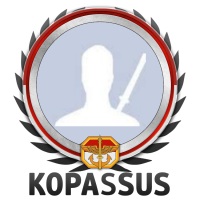
the cakes look delicious.. 

Dobar,zaboravio si na dobre djevojke 

Svaka cast
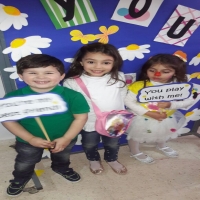
v c

Свака част! Ово није чланак, ово је бедекер!

that MAP is way to OLD . update it please . use map from 2008
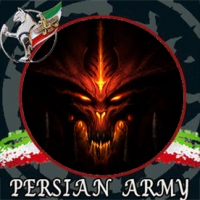
Good and long 
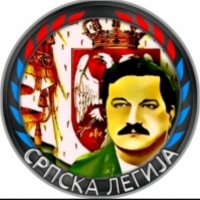
Svaka cast majstore!!!  Ima Subotica ima vote!
Ima Subotica ima vote!  Poslacu ti sliku golubove kuce da ubacis
Poslacu ti sliku golubove kuce da ubacis 

nilsone zar da štalu meće u članak

we want an independent Vojvodina😅😅😅😅😆
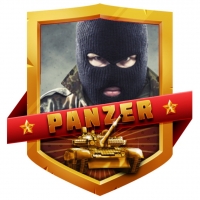
good article and long 

Ko nas je tolko oplodio pa smo sa 7.1 skocili na 8.9 milki? a svake godine umiremo  To mozda sa svim srbaljima u dijaspori XD
To mozda sa svim srbaljima u dijaspori XD
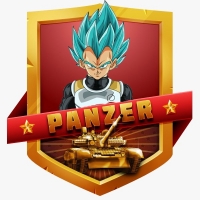
well done
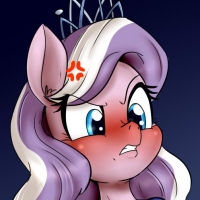
Nice, voted o7

Nice

Orthodox brothers o7

Serbia has no 88.000KM2, it has 77.
Kosovo is not part of Serbia, it is independent State.
Serbia has 7.1 milion people not 9 milion.
And last but not least, Vojvodina very very soon will become part of Hungary.
Cheers and dont fool yourslef and people with fake information.
If you ever decide to visit Republic of Kosovo, you will need passport in our borders.
Admins shall not allow politics ik this game.

Prema rezoluciji 1244 koju su potpisali Albanci sa Kosova i Srbi pod nadzorom svetskih predstavnika Kosovo moze da bude nezavisno samo AKO ga Srbija prizna kao nezavisnu državu. Zato vasi politicari stalno treze da Srbija prizna Kosovo jer znaju da bez Srpskog DA ono ne moze biti nezavisno. Uzivaj u igrici i ostavi se politike koju ne razumes. U Srbiji je svako dobrodosao kao sto vidis i sam i vas smo primili bez problema.
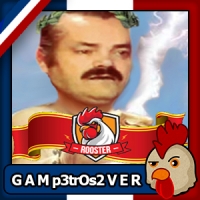
Православна Браћа





